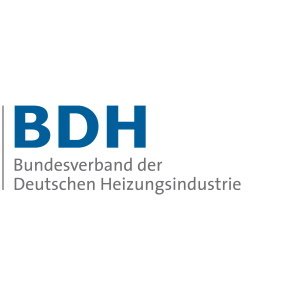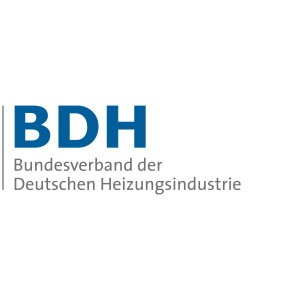BDH - Experts & Thought Leaders
Latest Federation of German Heating Industry news & announcements
The Wood Warmth Initiative has published a new information brochure entitled “Wood - the great renewable energy”, including recommendations for politicians. The partners of the initiative refer to the EU climate targets, which were tightened again by the European Council in November 2020. Utilizing wood to reduce CO2 While a CO2 reduction target of 40% was previously in effect, CO2 emissions are now to be reduced by 55% by 2030. “If you want to achieve such an ambitious goal, you have to fully reduce renewable and CO2- include the neutral resource wood for heat supply in the industry, in local heating networks and in buildings in the strategy”, emphasizes Artur Auernhammer, member of the German Bundestag and chairman of the board of the Federal Bioenergy Association (BBE). Auernhammer supports the promotion of modern and efficient wood central heating and calls for its continuation. This was transferred to the federal subsidy for efficient buildings (BEG) at the beginning of the year. the largest renewable energy in the heating market "With a share of around 5 percent of German final energy consumption, wood energy is at the same level as wind energy," emphasizes Andreas Lücke, coordinator of the Holzwärme initiative and managing director of BDH. Many are not aware that wood energy makes up 65% of renewable energies in Germany's largest energy consumption sector, the heating market. According to Lücke, with reference to data from the Agency for Renewable Raw Materials (FNR), the forest occupies around 11 million hectares, a third of the area of Germany. This is a peak in Europe. "For years, the German forest has been growing by 1 to 3 percent net, so that sustainable management is guaranteed, especially since only residual and damaged wood is used for energetic utilization, which is out of the question for material utilization.” Pro-climate protection The fine dust emissions could also be reduced by over 90% Christiane Wodtke, managing partner of the manufacturer of pellet stoves and wood-burning stoves of the same name and President of the Industry Association for House, Heating and Kitchen Technology (HKI) adds, “In recent years, our industry has advanced the efficiency of technologies with a high level of research and development." "Modern stoves and wood heating systems with efficiencies of 85 percent and more manageable with less than half the fuel compared to outdated systems. The fine dust emissions could also be reduced by over 90%.” Against this background, the partners of the initiative are in favor of the accelerated replacement of obsolete systems. About the initiative The wood heat initiative is supported by nine associations and institutions from the wood energy and wood heating sectors. The patronage is Thomas Bareiß, Parliamentary State Secretary in the Federal Ministry of Economics. The Holzwärme initiative participates in the energy policy discourse on the contribution of the sustainable and domestic resource wood and its contribution to climate protection. The Partners of wood heat initiative The partners include: Association of the German Tiled Stove Industry e. V. (AdK) Bundesverband Bioenergie e. V. (BBE) Federal Association of the Chimney Sweep Trade (ZIV) German Energy Wood and Pellet Association V. (DEPV) German sawmill and wood industry Bundesverband e. V. (DeSH) Fachagentur Nachwachsende Rohstoffe e. V. (FNR) Industrieverband Haus-, Heiz- und Küchentechnik e. V. (HKI) Central Association for Plumbing, Heating, Air Conditioning (ZVSHK) Federal Association of the German Heating Industry V. (BDH)
In 2020, the support programs of the Federal Office for Economics and Export Control (BAFA) and the Reconstruction Loan Corporation (KfW), which were increased as part of the climate package, ensured a significant market recovery. At the beginning of 2021, the Federal funding for efficient buildings (BEG) will come into effect, at least in part (individual measures in the grant variant) and will replace the previous programs. Federal funding for efficient buildings (BEG) Most of the funding conditions that have been in effect, until now, will remain in effect. “The BDH welcomes the merging and simplification of the funding framework,” stated BDH (Federation of German Heating Industry) President, Uwe Glock. It is now a matter of permanently securing the financial resources of the BEG in order to give potential modernizers planning security. In connection with the new funding, the BDH (Federation of German Heating Industry) points out that in the event of modernization of existing buildings, not only the heat generators, but also the heat transfer and heat distribution fall under the new funding. These include, for example, replacing radiators or replacing thermostatic valves. Funding includes all components of heating systems The new BAFA funding program, ‘Energy advice for non-residential buildings, facilities and systems’ started on Jan 1, 2021 “A modern heating system consists of several components: heat generation, heat distribution, heat transfer and storage. In order for a heating system to develop its full potential for efficiency, these components must be perfectly coordinated. The funding takes this into account,” said Christian Ludewig, member of the BDH (Federation of German Heating Industry) board. The investment costs and the costs for installation and commissioning, as well as the costs of the necessary environmental measures are eligible. The new BAFA funding program, ‘Energy advice for non-residential buildings, facilities and systems’ started on January 1, 2021. Guidelines for funding programs to be merged In the course of the new funding for non-residential buildings, the guidelines for the programs, including ‘Energy advice in medium-sized companies (EBM)’ and ‘Energy advice for non-residential buildings by municipalities and non-profit organizations (EBK)’ will also be merged. In addition, the contracting orientation advice is added. A comprehensive funding scenario is now also available for industrial modernizers.
Despite the collapse of the most important markets outside Germany, including France, Italy, Spain and the United Kingdom, in the first half of the COVID-19 plagued year - 2020, the German heating industry achieved robust growth worldwide of at least 3.1% down. Growth in German heating market “The initially high losses in southern Europe and the United Kingdom were partially offset by a race to catch up in the second half of 2020, at least in Italy, France, and the UK, so that the sales level here was slightly below 2019,” said Uwe Glock, President of the BDH (Federation of German Heating Industry). Glock adds, “The fact that we are actually in the black is thanks to the dynamic growth in Germany with a good 13%. The Polish heating market also developed similarly in 2020.” Federal climate package for buildings Glock describes the federal government's climate package as a complete success for climate protection in buildings Glock describes the federal government's climate package as a complete success for climate protection in buildings. He adds, “The top runners of 2020, the heat pump and wood heating, benefited from this, with high growth rates due to the subsidies.” The association also focuses on the disproportionately high share of investments in condensing technology coupled with solar thermal energy. This renaissance of solar thermal energy can also be traced back to the ‘Heating with renewable energies’ funding program that has been running since the beginning of 2020. Dynamic growth in heating with renewable energies “The success of the climate package proves that the political ideas behind the grand coalition are right and with the dynamic growth in heating with renewable energies, the ambitious CO2 reduction targets of the Green Deal are within reach,” said Andreas Lücke, General Manager of the BDH (Federation of German Heating Industry). Andreas adds, “The German heating industry is Green Deal ready and already offers marketable solutions for achieving climate targets. What is now needed is continuity with the currently favorable framework conditions for investors in high efficiency and renewable energies.”
From A To L: Your A2L Transition Guide
DownloadLeveraging Radiant And Hydronics To Help Achieve Decarbonization Goals
DownloadSealed Connectors In Harsh Environments
DownloadPowering And Cooling Next Generation Data Centers
DownloadDebunking Myths To Promote A Bright Future For Heat Pumps
Download


















